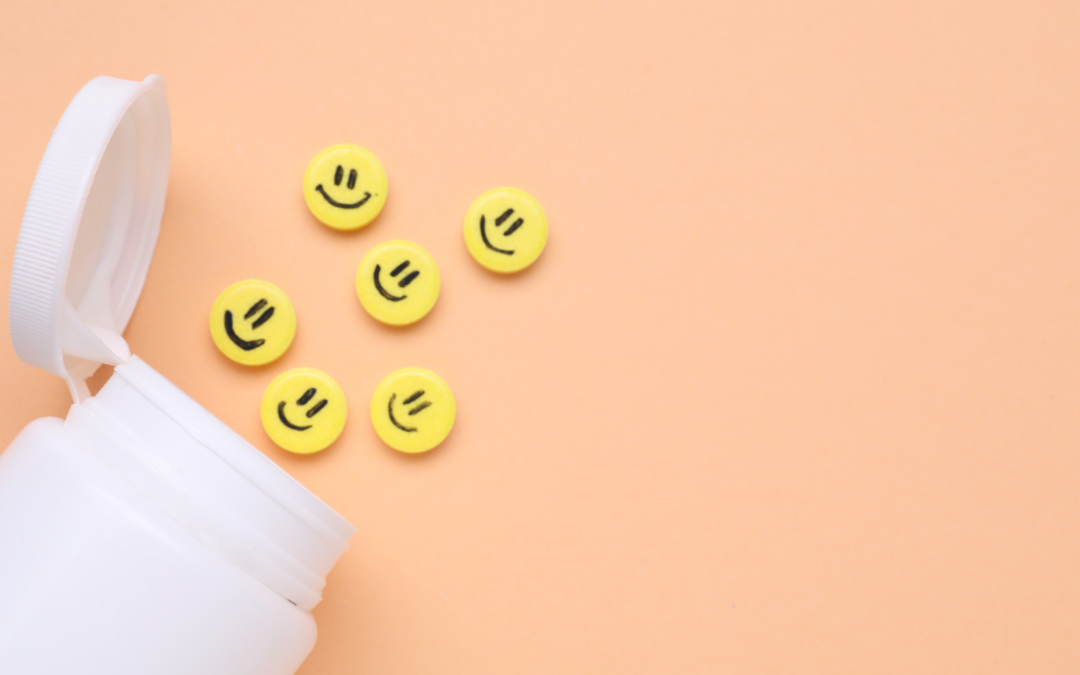Sometimes life feels a little off-kilter, like the world has dimmed its lights and lost its sparkle. Maybe it’s a passing gray cloud, or perhaps it’s something deeper. If you’ve been feeling low, disconnected, or just not yourself for a while, it’s important to be gentle with yourself.
These could be signs of depression, and reaching out for understanding and support is a sign of strength.
This blog is here to provide a safe space to explore the world of antidepressant medication.
We’ll discuss different types, how to know if they might be a helpful option, and what to expect along the way.
Remember, millions of people around the world experience depression, and there are effective treatment options available.
You are not alone on this journey to feeling better.
What Are the Top 5 Antidepressants?
Finding the right antidepressant can feel overwhelming, but understanding your options can make the process a whole lot easier.
Here are 5 popular and well-regarded antidepressants that many people find helpful:
- Sertraline (Zoloft): This SSRI is a go-to for many doctors treating depression, anxiety disorders, PTSD, and OCD. It’s known for having fewer side effects, making it a solid first choice for many.
- Fluoxetine (Prozac): As one of the earliest SSRIs, fluoxetine has helped countless people with depression, OCD, panic disorder, and bulimia nervosa. Its long-lasting effects can be beneficial if you’re someone who sometimes forgets to take their medication.
- Escitalopram (Lexapro): Loved for its effectiveness and fewer side effects, escitalopram is often prescribed for depression and generalized anxiety disorder (GAD).
- Citalopram (Celexa): Similar to escitalopram, citalopram is great for treating depression and anxiety. Many find its balanced side effect profile to be quite manageable.
- Paroxetine (Paxil): Paroxetine is effective for depression, anxiety disorders, PTSD, and OCD, but it can have a few more side effects and withdrawal symptoms than some other SSRIs.
Choosing the right antidepressant is a personal journey. It depends on your specific symptoms, medical history, and how you react to the medication.
Working closely with your healthcare provider can help you find the most suitable option. Remember, it might take some time to find the perfect fit, but there’s a solution out there for everyone.
Don’t hesitate to reach out for help and keep the conversation open with your doctor to ensure the best possible outcome for your mental health.
How Do I Know If I Need Antidepressant Medication?
Life can be tough sometimes, and you might find yourself feeling down, disconnected, or just not yourself. Maybe the spark has dimmed a bit, and activities you used to love just don’t hold the same joy.
These could be signs of depression, and that’s okay. The important thing is to acknowledge how you’re feeling and reach out for support.
Everyone is different.
Here are some signs that might indicate depression:
- A Persistent Low Mood: Feeling sad or down most of the day, every day, can be a red flag.
- Losing Interest in the Things You Love: Those hobbies that used to bring you joy suddenly feel like a chore? This can be a sign of depression.
- Changes in Appetite or Sleep: Are you noticing significant changes in your eating or sleeping patterns? These can be symptoms of depression.
- Feeling Restless or Sluggish: Do you have a hard time sitting still, or do you feel constantly drained and unmotivated? These are possible signs to watch for.
- Difficulty Concentrating or Making Decisions: Feeling foggy-headed or overwhelmed by even simple choices can be a symptom of depression.
If you’re experiencing several of these symptoms for more than a couple of weeks, it’s time to reach out to a healthcare professional you trust. They can listen to your concerns, assess your symptoms, and help you determine if antidepressant medication might be a helpful part of your journey to feeling better.
Remember, you’re not alone in this.
Depression is a common condition, and there is help available. Talking to your doctor is the first step towards finding the support and treatment plan that’s right for you.
What is the Most Commonly Taken Antidepressant?
SSRIs are generally considered one of the most commonly prescribed types of antidepressant medication because they tend to be well-tolerated with fewer side effects compared to other classes of antidepressants.
How Do Antidepressants Make You Feel?
Antidepressant medications can take several weeks to begin working fully. It’s important to be patient and consistent with taking your medication as prescribed by your doctor.
Here’s what you might experience:
- Improved Mood: The primary goal of antidepressant medication is to alleviate symptoms of depression, such as feelings of sadness and hopelessness.
- Increased Energy Levels: Depression can often lead to fatigue and a lack of motivation. Antidepressants may help improve your energy levels and increase your ability to engage in daily activities.
- Better Sleep: Sleep disturbances are common with depression. Antidepressants can help regulate your sleep patterns and improve your overall sleep quality.
- Reduced Anxiety: Some people with depression also experience anxiety symptoms. Antidepressants can be helpful in managing both conditions.
It’s important to note that antidepressants don’t always work for everyone.
What are the 12 leading antidepressants?
Sertraline (Zoloft)
Escitalopram (Lexapro)
Fluoxetine (Prozac)
Paroxetine (Paxil)
Citalopram (Celexa)
Venlafaxine (Effexor XR)
Duloxetine (Cymbalta)
Desvenlafaxine (Pristiq)
Bupropion (Wellbutrin)
Mirtazapine (Remeron)
Amitriptyline
Nortriptyline (Pamelor)
What are the 3 most common antidepressants?
Sertraline (Zoloft)
Escitalopram (Lexapro)
Fluoxetine (Prozac)
What is the number one antidepressant?
Sertraline (Zoloft) is often considered the most commonly prescribed and widely used antidepressant, especially for both depression and anxiety.
Some people may experience side effects, and it may take some time to find the right medication and dosage that works best for you.
Open communication with your doctor is crucial throughout the treatment process.
Conclusion
Antidepressant medication can be a powerful tool for managing depression.
If you’re experiencing symptoms that are interfering with your daily life, talking to your doctor is the first step towards feeling better.
They can assess your individual situation and determine if medication might be a beneficial part of your treatment plan.
Remember, there is no shame in seeking help for depression.
It’s a common condition, and reaching out for support is a sign of strength. With the right treatment plan and a supportive network, you can manage your depression and live a fulfilling life.
Don’t hesitate to take charge of your mental wellbeing – you deserve to feel happy and healthy.

Indigo Therapy Group
Therapy Services for the Greater Chicago Area
Locations
Northbrook Location
Oak Park Location
1011 Lake Street, Suite 425
Oak Park, IL 60301
Things To Know
- Elevators & Parking are available at both locations at the buildings.
- Virtual services are provided throughout Illinois.

